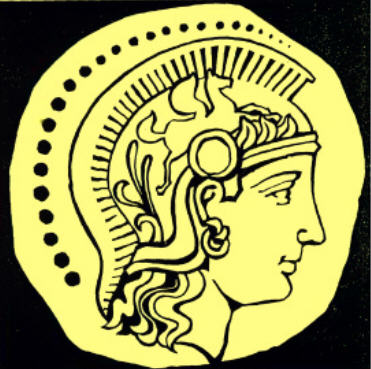Pictures and Projects

Centers
Centers
Centers
Centers


In this simulation, students meet with members of the All-Star Thinking team from ancient Greece. These are all gold medallists of thought and are honored throughout the world today, for their record setting performances.
After a brief introduction to each star, a warm up is assigned in their particular specialty. Then the competitions begin! The star challenges the students and they challenge each other in a series of puzzlers of Olympic proportions.
Working as teams, students earn precious drachmas. Successful teams will receive a special reward of their own - that of Master Mathemetician.
Some of the SOLs covered:
Students will...
* develop skills of historical analysis (SS 5.9 )
* use the Pythagorean theorem to find the length of an unknown side.. (M 5.13, 5.19, 5.20, 6.22, 8.11)
* id. the relationship between weight and distance
from a fulcrum. (S 5.1)
* Summarize Archemedes Law of Levers in formula.
(S 4.2, PS 10)
* Use organized lists and permutations to solve
Diaphantine algebra problems (M5.19, 5.20)
* Use deductive and inductive reasoning ( S 5.1, M 5.24
* id and find prime numbers using Erotosthenes Sieve. ( M 5.19, 5. 24)
Marzano strategies emphasized:
* Summarizing and reflection
* Use of non-linguistic representations
* Forming and testing of hypotheses.
Greek theater traces its roots to early religious festivals. Festival goers sat in semicircular rows of seats built into the hillside, forming an amphitheater. The actors, called thespians, wore masks with exaggerated expressions, which could be seen even in the back rows.
The masks we use to represent the theater today are known as "tragedy and comedy". A tragedy is a form of drama characterized by its serious tone and unhappy ending, as shown by the mask with the turned down mouth. A comedy was light and humerous with a happy ending, as the mask with the smile portrays.
As time passed, drama developed further. In the 10th century, Christian ritual and philosophy gained more influence. Today, all cultures use theater for entertainment.
Some of the SOLs covered:
Students will...
*Gain knowledge base about the hisotry of the
theater, stage directions, script reading & writing.
*Analyze oral participation in small group
activities. (LA 6.1)
*Listen, draw conclusions, and share responses in
subject related group learning activities. (LA 5.1)
*Use effective nonverbal communication. (LA 5.2)
* Make planned oral presentations. (LA 5.3)
* Use content to clarify meaning of unfamiliar
words. (LA 5.4)
* Read and demonstrate comprehension of fiction.
( LA 5.5)
* Write to entertain. (LA 5.8)
* Create 2-3 dimensional mixed-media com- bining various techniques and processes.
* Make use of painting media, techniques,
processes, and tools. (Art)